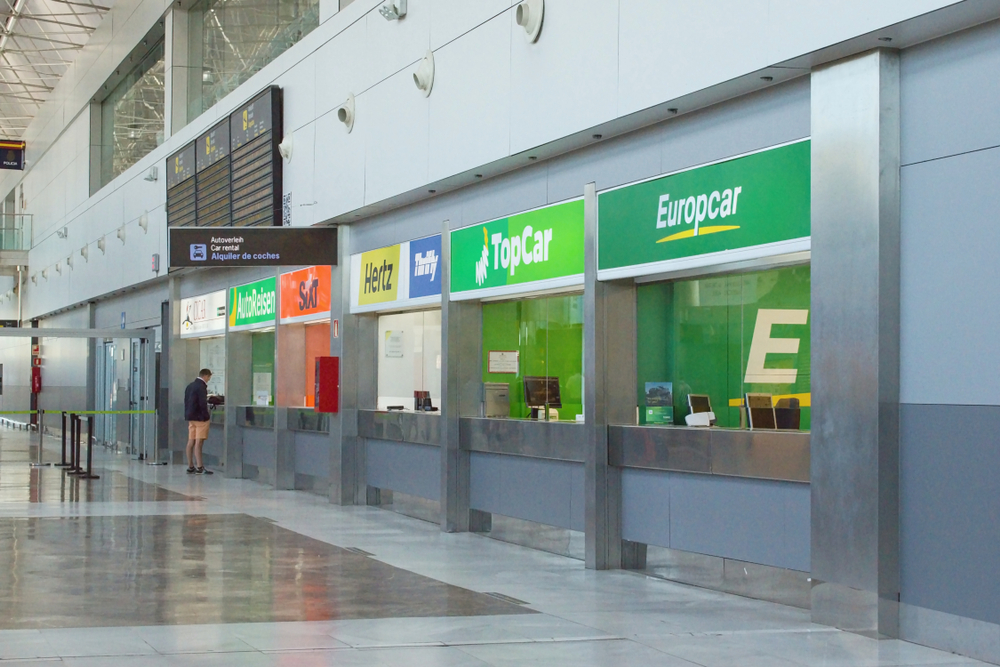Household Bills
The cheapest times and places to book car hire

Leaving car hire to the last minute could mean missing out on the best rates
Millions of Brits already have all of their holidays and annual leave booked for 2020.
That’s according to new research carried out by online car hire service Rentalcars.com, which also found nearly a third of the nation were planning their trips for this year before it had even started.
However, while most people get on with booking their flights and accommodation shortly after deciding where they want to go on holiday, it can be easy to forget about some of the other essentials which many of us end up leaving until the last minute.
If you leave booking things like car hire, travel insurance and transfers until the last minute, there’s risk of missing out on the best rates and it can end up costing far more when booked nearer the time.
We spoke to the experts at Rentalcars.com to get the lowdown on the best time to book car hire, along with a few other tips and tricks to keeping the cost of holiday extras down.
When is the best time to book?
Making your booking between three and six months in advance of your trip is strongly advised. This way, you’ll have made the booking soon enough to get your preferred car model from your preferred rental company and you’ll ensure the best deal by booking ahead.
Rentalcars.com booking data reveals that customers travelling to some of Europe’s most-loved destinations could end up saving up to 36% on car hire costs when they book early.
For example, those travelling to Spain in July could save an average of £18 for seven days’ car hire when booked in May, compared to those who book in July. For Portugal, customers who book in May could save approximately £50 for a seven-day booking in July, compared with those who book during the month of travel.
Where can I get the best deal on car hire?
Last year the number of international visitors to Spain hit an all-time high.
Renting a car is one of the best ways to discover everything the country has to offer – especially if you’re planning to explore on a budget. For example, the average cost of hiring a car in Spain during peak summer season is just £21 a day.
And most British holidaymakers choose an economy car, like a Ford Fiesta or Vauxhall Corsa, which comes in even cheaper at under £15 a day.
Compare that with France, the second most popular destination for UK holidaymakers, where the average car rental cost is more than double that, at £34 a day.
However, Spain is by no means the cheapest destination for car hire in Europe. Slovakia is the cheapest at £14.60 a day for an economy car, while South Africa (£11.76) and Slovenia (£15.92) are also incredibly affordable options for those weighing up car hire and transfers
What else can I do to keep the costs down?
Be flexible with your pick-up and drop-off times
Pick-up and drop-off times can significantly impact the price of your rental. As cars are rented out in 24-hour ‘blocks’, a 25-hour car hire will cost as much as a 2-day rental. This is why car hire shouldn’t be an afterthought, it should be part of the full logistical planning.
Keep your eye on the time when planning the drop-off and return time for your car to ensure that you aren’t incurring an extra day’s worth of charges.
Look further than the closest rental counter
Car hire counters within an airport terminal may seem extremely convenient, but they are often the priciest. Most major cities and holiday destinations will offer several pick-up counter options, some of which might even have free transport from the airport to the counter.
If you’re looking to keep costs down, it pays to do the research and explore all of your options.
Understand your fuel options
The most popular policy regarding fuel is ‘Full to Full’: the customer picks up a car with a full or part-full tank, and only replaces the amount of fuel they used during the car rental period, with no additional fees. In most cases, this is most cost-effective option.
If you opt for ‘Full to Empty’ or one of the ‘pre-purchase’ options, you will be charged for the fuel that is in the tank when you pick the car up. When you drop the car off, you should make sure that the tank is as empty as possible. Warning: this is often difficult to determine and can lead to customers being caught out and giving away the fuel that they paid for.
Decide on a designated driver
Car hire will be cheaper if only one person is listed as the driver, provided they are happy to be at the wheel during the entirety of your trip. For most car hire companies, the charge to add an additional driver is £10 per day but can be higher if the driver is younger than 25.
If you would prefer to spread the driving time, be sure to check for ‘free additional driver’ deals when booking as some car hire companies do offer it.
Don’t hang your hat on the car model
Your vehicle choice will be based on a group of similar cars, which is why you’ll see the phrase ‘or similar’ on the booking website. Even though there will be a picture of a specific car next to each option, you will be allocated a car that fits that particular category.
So as long as you choose the minimum level of car that you’re happy to drive, you can ask for a change of car, depending on what’s available, or an upgrade at the pick-up desk – which can sometimes be free of charge if you’re lucky.